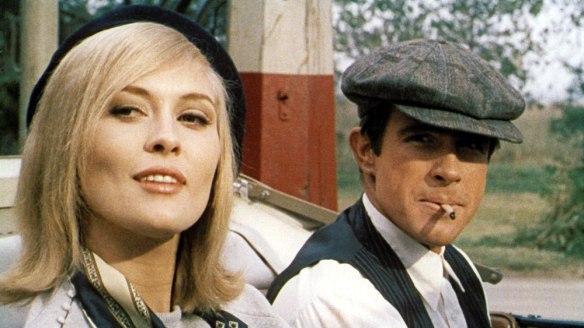1960’s American cinema brought profound changes to our society, and in turn, really helped the world in terms of a counter-culture movement as well as bringing about radical social revolutions. The 60’s were a turbulent decade for the movie industry: the studio system crumbled, the production code was abolished, more and more independent producers were popping up, and competition from television and foreign art films started to weigh on Hollywood’s profits.
Our movies became cynical and violent, some even sexually explicit, in order to reflect different aspects of subculture that were growing out of the era. Teenagers were still being exploited, and they wanted to see rebellion. This famous era can usually be defined by films with themes similar to Bonnie and Clyde, which we screened in class, and early 70’s blockbusters Jaws and Star Wars. Movie enthusiasts say that this is the era when Hollywood revived and reinvented itself. The generation that was growing up had been disenchanted by Vietnam, fed up with the governments control, and much less willing to conform than the generation before them.
A lot of the film content being released in America was still being imported however. Countries like Italy and Britain were supplying steady stream of art films that seemed to be pleasing the American public. Around this time is when foreign directors started to gain more traction with an international fan base, like Bergman, Fellini, Truffaut, and Godard.
The studio system was collapsing due to buyouts and the untimely deaths of industry moguls, so most of them were bought out by bigger players and put on the back burner of their larger business. This massive change came with the unpredictable, but imperative fallout that new and young producers were finally given a platform to exhibit their kills and take artistic risks when making their content. These new producers to step on the scene were familiar with their audience and understood what kind of content they were looking for. That is when the American New Wave came about.

This new type of attitude was put on display in 1967 when Warren Beatty produced Bonnie and Clyde. The movie was influenced by the French New Wave and therefore romanticized the depression era criminal couple, making the audience empathize with them throughout the film and showing the human side of the killers. Upon the film’s release, the young generation of moviegoers were instantly able to related to the couples’ anarchist spirits and spontaneous decision making. It quickly became one of the biggest box office hits of the year and was nominated for ten academy awards, and taking home two for best supporting actress and best cinematography.
The film was also able to attribute some of its appeal to the comic aspects that Arthur Penn blended into some of the more violent scenes. In fact, one of the first cuts of the film was criticized with the statement that it was too much of a slapstick comedy than a gangster movie. This made me think, are movies like this exploitation? It was accurate, but did the the final version of the film need to be funny or romanticize their disregard for the law?

I agree with the question you ended this week’s blog on–did there need to be so much humor is Bonnie and Clyde? Personally, I enjoyed the comedy in the film, even during the crimes. It may not be what I would expect from a criminal act, but the movie wasn’t what I expected. Good question though, and a good point. This is a great post that covers all the bases, well written and well thought out.
LikeLike
About the comedy in the film, I usually feel that trying to incorporate comedy into a film that is meant to be serious takes away from the film. I think it did take away from the plot and from feelings that could have been inflicted instead of humor. But I also did like how it lifted the mood to show their fun loving relationship, despite the crimes the were committing, it kind of shows how they may have actually felt at the time.
LikeLike